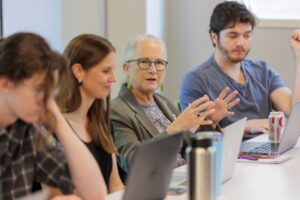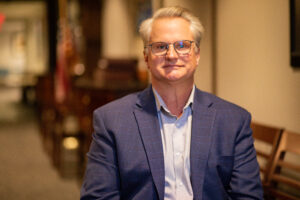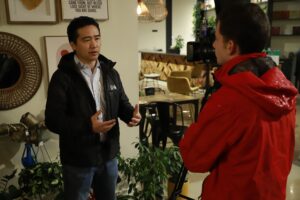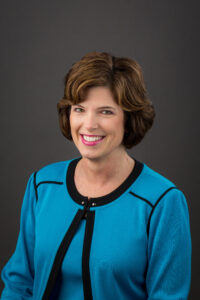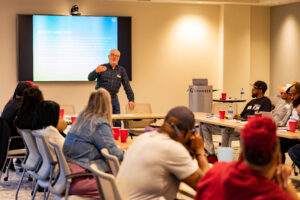NATALIA PEREZ, MARKETING AND COMMUNICATIONS INTERN
Kenneth Bautista, sophomore business administration major at Southern Adventist University, spent the summer of 2020 selling everything in his garage and basement online. Undergoing strenuous chemotherapy treatments amid the COVID-19 lockdown and limited to his house, he and his brother brainstormed ways to make money from home. They decided to sell everything they’d kept in their garage via Facebook Marketplace, Craigslist and Ebay. Within two weeks, they’d sold everything in their garage.
They then began scouting items to purchase and refurbish. Their father found a store that sold Amazon returns, so they started there. Ultimately, though, to raise their profit, they looked for ways to shop local and purchase what they needed directly from the source. Soon, Bautista found a warehouse that sold pallets of damaged or returned goods, and he and his brother began buying, refurbishing and selling them.

Photo courtesy of the Southern Accent. Pictured above is Kenneth Bautista.
These were the humble beginnings of Bautista’s now Markdown Mart. As fall semester began at Southern, he rerouted his business to selling dorm essentials–laundry detergent, multipurpose cleaners and shampoo, among many other things — to Southern students at discounted rates, saving them a trip to a local supermarket.
While he launched his business from a need to busy himself, he’s now using his earnings to cover his tuition.
Gen-Z Entrepreneurs in a Time of Crisis
For many college students, COVID-19’s effects came in the form of cancelled internships, postponed summers abroad, delayed graduations and a crippled job market.
Like Bautista, many Southern students have deepened their creativity during this time, launching side hustles and small businesses, paving their own way to a future more uncertain than it has been for other college grads in recent years. Just as millennials graduated into a recession in 2008, Gen Z’ers graduated into a volatile job market in 2020. However, as digital natives, this generation of college students not only craves independence from the 9 to 5 grind, but has the creativity and digital savviness to pull it off.
Darcie Denton, senior fine arts major at Southern, has amassed an Instagram following of 36.2K from commissioned work and selling original art pieces, prints, stickers, shirts and sweatshirts. She uses her platform, @thatoneartist, to promote her work and occasionally post sponsored content.

Pictured above is Darcie Denton in her studio at Southern.
“It started with me wanting to put my artwork out there,” Denton says in a Southern Accent article. “But when I decided to fully go for it and become a fine art major, I realized I needed to make money from this. I started off with commissions for my family and random people on Instagram, and things really started selling when I posted a Van Gogh collection YouTube video.”
Denton’s dream is to make a living from creating original art. After she graduates, she eventually wants to run her business on a full-time basis.
“One of my biggest goals for business growth is to sell consistently online,” Denton says. “I see pictures of other artists in their living rooms surrounded by hundreds of packaged orders ready to mail, and I think, ‘That's where I want to be someday.’ I would also love to do more collaborations with other artists, influencers and businesses. Eventually, I would love to get more of my work into galleries and host art shows of my own.”
Denton feels the pandemic hasn’t changed the way she runs her business, and her sales have even picked up this year as she recently landed one of her biggest commissions to date this past summer, when she designed a map for a school.
“The money I make from my business isn't my sole income. I work a few other jobs on campus and am still mostly dependent on my parents. However, it's further ingrained in me the importance of having multiple streams of revenue as an artist and small business owner.”
A Rich and Diverse Market
In its 2019 listings, U.S News and World Report ranked Southern as the third most diverse university in the South, which has granted Southern students a unique set of opportunities and cultural experiences compared with the offerings of its regional counterparts.
Students who attend Southern are not only likely to meet and work with others who have different racial and ethnic backgrounds than their own, but they’re also exposed to diverse talents, business approaches and ideas, many of which are culturally influenced.
This university setting has also granted student entrepreneurs an incubator period, a safety net to build a supportive network, gain an audience and choose from a pool of resources to sustain their businesses.
“Being a student at Southern has been fantastic for my business,” Denton says. “For starters, it's full of peers who are very supportive and encouraging of my artistic pursuit. There are also many people like me, whether they be artists, small business owners or both, who I've been able to learn from and feel mutual support.”
“We were so appreciative of the fact that we barely had to do any marketing or advertising to get the word out about our business,” says Morgan Nash, senior psychology major and co-founder of A.M. Juices, a cold-pressed juicery. “As soon as we made our first post, there were over 40 students who reposted us on their own to help get the word out. Within the first two days, our account had over 1,000 profile visits and we had a couple hundred followers. Within the first couple weeks, we were averaging 35 to 50 orders and actually had to set a cut-off.”
The spike in entrepreneurial growth among Southern students culminated in a new student tradition when Southern’s former Student Association President Rhidge Garcia led his team in hosting the university’s first ever 423 Night Market.

Photo courtesy of the Southern Accent. Pictured above is Laiza Fuhrmann, founder of Lai Ceramics.
The local market was held at The Commons in Collegedale, and hosted 54 vendors selling goods and food from around the world, handmade pottery, art, desserts and more. They also provided services such as haircuts, eyebrow threading and waxing. The event not only empowered Southern students to discover and showcase their talents, but to share in each other’s cultures and connect with the community.
“One of the greatest things for small business owners at Southern is 423 Night Market, where students can set up booths and sell their products and services,” Denton says. “It's a fun, creative, exhilarating night, and I've always had good success there.”
“423 Night Market has helped grow my confidence in my business and, most importantly, connected me to many around the area and those enrolled at SAU,” says Laiza Fuhrmann, senior fine arts major and founder of Lai Ceramics, where she sells her handmade pieces. “My studio professors have also helped me forge connections with other artists and people in the art community, which I am so grateful for.”
This year’s market, held instead on Southern’s campus due to the pandemic, allowed students to keep 100% of their earnings. More than 75 vendors participated.
Navigating Post-Grad Life
The last few months of college are typically stressful as students figure out future plans. For this year’s graduates, that stress is compounded by anxieties about financial security, finding a job and living through a pandemic in general.
“In all honesty, I am terrified of graduating because of the unknown that comes after,” Denton says. “It is a mix of fear and excitement. I have always been nervous about what comes after college because of the nature of what I want to do. Running a small business can be risky, and the anxiety surrounding that has grown during these uncertain times.”
“I’ve had a lot of anxiety on how I will be able to progress after graduation,” Fuhrmann says. “Ideally, I’d plan on working at a job pertaining to my major while I get my store going; however, the demand is very low. I worry about how I will be able to maintain an art business for myself when there are larger things at stake, such as health and finances.”
A.M. Juice co-founder Nash was among many students who had an internship cancelled and had to reroute her entire post-grad plan. Thankfully, it worked out.

Photo features co-founder Morgan Nash (right) and co-founder Alexis Schultz (left)
“When my in-person summer internship in Kettering, Ohio, got cancelled earlier this year, I had to head back home to Colorado. This was extremely stressful at first, since I graduated in December and was eager to build connections and have a job lined up for January.
“I ended up finding an in-person internship at a hospital for the last month of summer, which led to job interviews and eventually a job offer at the Advent Health Hospital System in Orlando, Florida post-grad. The pandemic forced me to step out of my comfort zone and build connections I otherwise wouldn’t have.”
As a follow-up to this story, Trend conducted interviews with several Southern Adventist University entrepreneurs, including the ones mentioned in this feature. Read them here.
